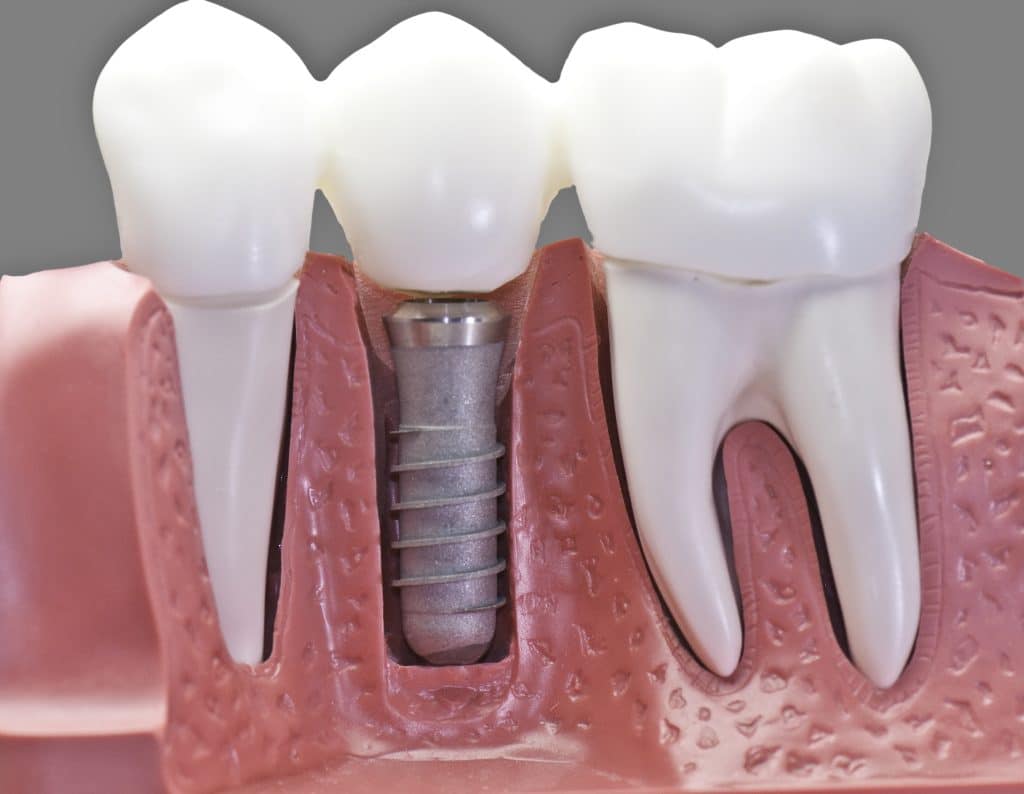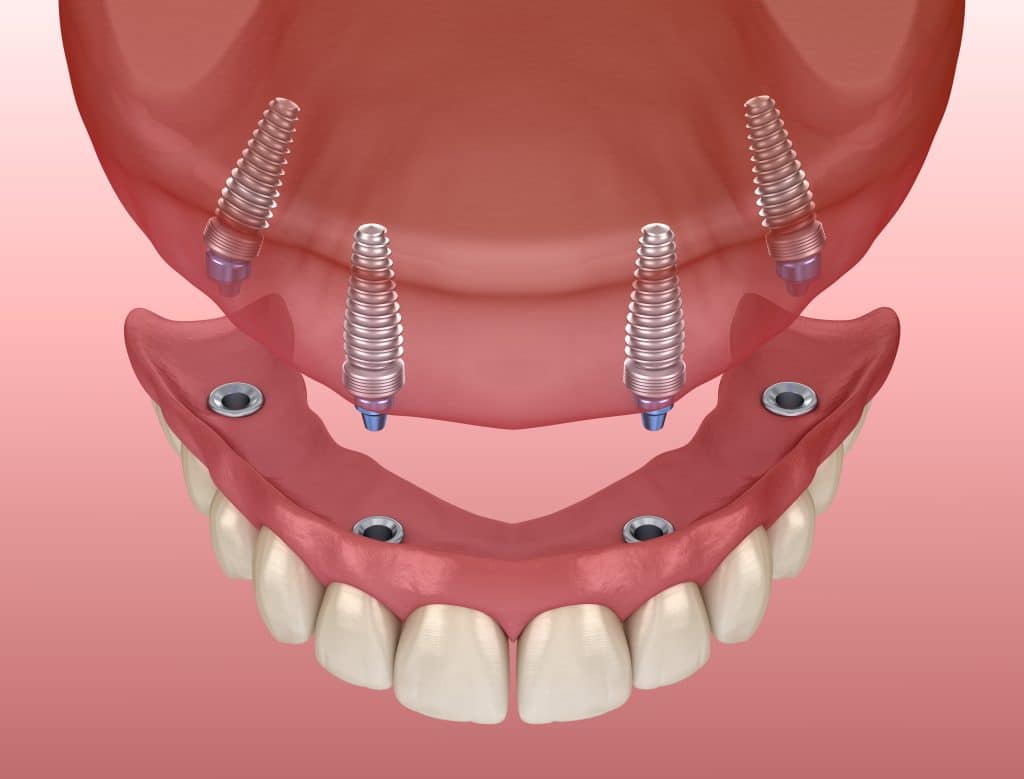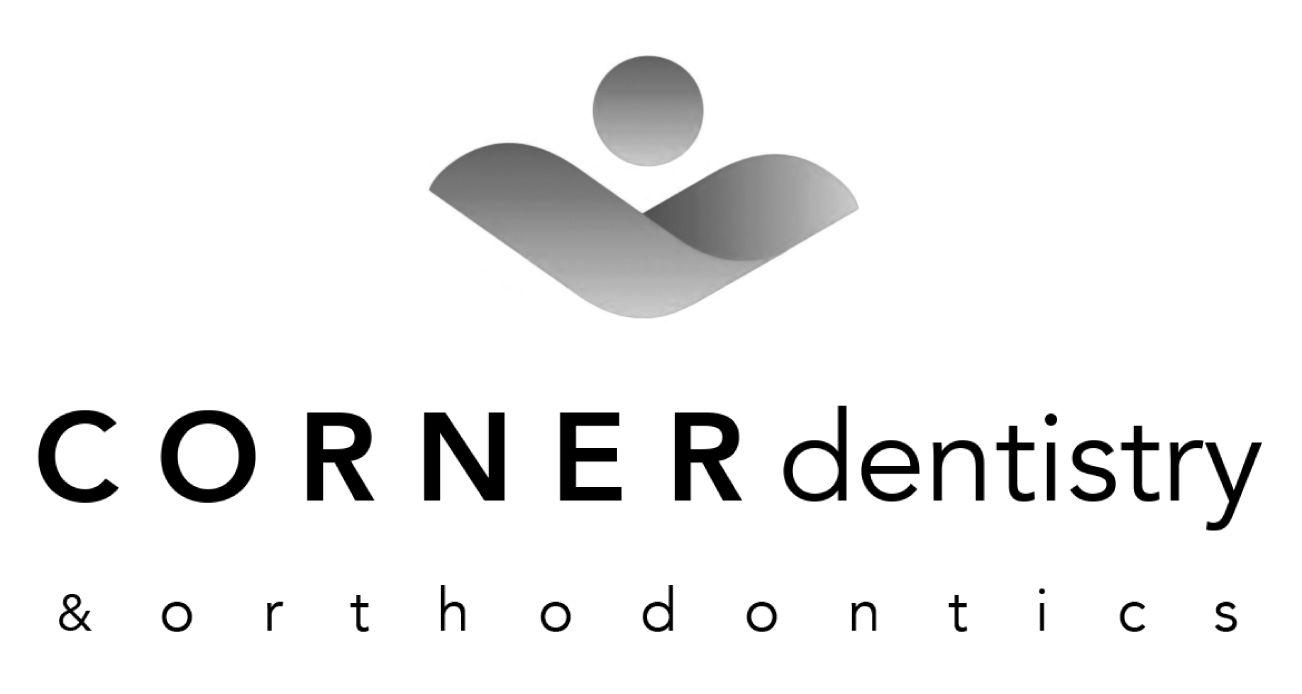Even the best looked after teeth may accidentally become damaged and need to be replaced. For many people, dentures or bridges can help restore a smile, but for a permanent solution that looks and feels like their own, patients might opt for dental implants.
What Are Dental Implants?

Dental implants are intended to replace the tooth roots and provide a strong foundation for permanent or removable replacement teeth, either because the whole tooth is already missing or it needs to be replaced due to damage or disease.
The implants themselves are traditionally screw-like structures that a dental surgeon will insert into the jawbone that act as an anchor for the artificial tooth, also known as a crown. The crown is custom made to each patient to match the look and feel of the teeth around it so that once the implant is placed and healed, it feels like a natural tooth. An abudentment, which is a small piece of metal, goes on top of the dental implants and acts as a base to connect the crown to the dental implant and secure it.
Your dentist will be able to determine if your tooth needs to be removed before they discuss dental implants. While there are many benefits to getting dental implants if you do need to replace a missing tooth or multiple teeth, you need to have a healthy jaw in order for the implant to be successful.
Types of Dental Implants
Endosteal/endosseous dental implants

Endosteal dental implants are the most common dental implant used today. This type of implant is made usually from titanium and is shaped like small screws that are placed in the jawbone. Once they are implanted into the jaw bone, the mouth and gums are given a few weeks to heal over. After the mouth has healed, the dental surgeon will expose the implant through the gum and attach the abudentment to it, and then finally the crown.
Subperiosteal implants
If you need implants but your jaw isn’t healthy enough to support them, your dentist may suggest a subperiosteal implant instead. Subperiosteal implants use a metal frame shaped like a bridge, usually made from titanium, and is placed between the jawbone and the gum, underneath the periosteum. The periosteum is a thin layer of tissue between the jawbone and the gum and helps bones heal if they are damaged.
As with endosteal dental implants, subperiosteal implants are placed and then left to heal before the posts and crowns are placed. They are best for patients who need to replace multiple teeth in one section of the mouth or those with jawbone issues who do not want to undergo bone grafting. However, your dental surgeon will examine and make recommendations based on your health and needs.
All-on-4 implants

The other option for replacing multiple missing teeth are all-on-4 implants. Instead of having to replace each tooth individually, all-on-4 dental implants allow dentists to insert four posts into the jawbone as anchors and then attach a permanent denture to the four posts.
The benefits of getting all-on-4 implants is less procedure time and often can cost less than multiple traditional endosteal implants. Candidates for these types of dental implants need to have a high level of jaw bone available since there are four posts that are placed into the bone.
Mini dental implants
Mini dental implants are similar to traditional dental implants except that they are much smaller in size, measuring less than 3mm in diameter. They are a one-piece screw with a ball shaped end that supports the replacement tooth.
With mini dental implants, dentists place them over the surface of the gum instead of beneath, like they do with full-sized implants. This makes them an excellent option for those who need to replace a tooth but do not have the bone density to support it.
Since these types of dental implants are placed on top of the gum; the procedure is less invasive and only requires a local anesthesia with faster healing time. However, they may not be suitable for every patient, especially those with severe dental issues that may need more intensive treatment such as a traditional endosteal implant. Those who are interested in mini dental implants should talk to their dentist to discuss the option.
The Difference Between Fixed or Removable Dental Implants
The crown portion of dental implants also come in two different types: fixed or removable. Which one you choose to get will be based on budget, personal preference, and your dental surgeon’s recommendations.
Fixed – Fixed crowns are artificial teeth that are permanently screwed or cemented onto the abutment, similar to how regular crowns are placed on the remaining tooth. The tooth cannot be removed for sleep or cleaning and acts as a true replacement. They are created to be strong to avoid any damage, but if they do become damaged by accident, your dentist can replace them with a new artificial tooth.
Removable – Removable artificial teeth for implants are similar to a partial or full denture. They are artificial white teeth surrounded by plastic gum and mounted on a metal frame that is attached to the implant abutment. With a removable crown, it can be taken off the abutment for daily cleaning or, if it gets damaged, repaired with ease.
Alternatives to Dental Implants

Although there are many types of implants to choose from, sometimes you may not feel comfortable with the idea of undergoing a surgical option or cannot afford them at the time. Luckily, there are several alternatives to traditional dental implants that may be less invasive. Your dentist can discuss all of the options with you to make sure you are comfortable choosing the best solution for your mouth.
Classic bridge
Classic bridges are good for those who are already missing one or multiple teeth and want to restore their smile without implants. A bridge uses two crowns on either side of the missing tooth, then replaces the tooth in the middle giving the illusion of an implant.
They are less expensive than a traditional implant and less invasive, but come with challenges. Bridges can easily be knocked loose, chipped, or even broken with certain foods over time. They can also cause gum issues if they aren’t properly taken care of.
Maryland dental bridge
During the placement of a Maryland dental bridge, the neighboring teeth of the missing tooth are prepared with new crowns. The new artificial tooth is then made with small wings on either side that hold it in place with the neighboring teeth. Maryland dental bridges are one of the least invasive procedures, but are only good at replacing one tooth at a time. For multiple teeth, an implant, bridge, or dentures would be better options.
Partial or full mouth dentures
Partial or full mouth dentures are custom fitted artificial teeth that fit perfectly in your mouth and match your original smile. Complete dentures fit over the lower or upper jaw, while partial dentures can replace one or a few teeth. They are typically made from acrylic resin, a type of plastic, but can also be made from porcelain, which do last longer but are not as strong as acrylic.
Although dentures may seem like an easier route than dental implants, there is a lot of upkeep with them to make sure your mouth stays healthy. Jaws and mouths shift over time so dentures will need to be replaced every few years. They also need to be kept clean by brushing twice a day and flossing, as well as cleaning the dentures themselves with a special cleansing solution in order to prevent any infections or other oral problems from occurring.
The Benefits of Getting Dental Implants
There are many benefits to getting a dental implant over dentures, such as improved chewing and eating, improved speech, and a higher sense of self-esteem from having an improved smile. Dental implants can also improve your oral hygiene; they lead to a lower risk of developing cavities in other teeth and are known to last for many years with proper oral hygiene. If you are interested in learning more about how dental implants can help change your smile, book an appointment with us today.
